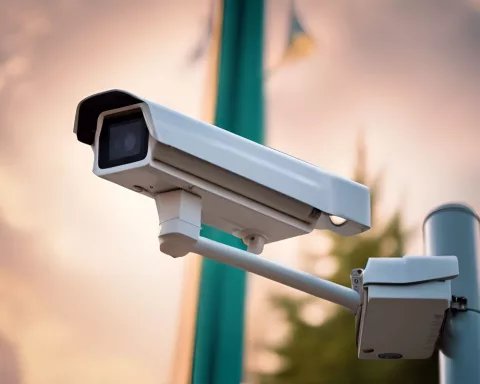Maria Williams, the widow of rugby player Chester Williams, has won a legal battle against supermarket giant Pick n Pay. The lawsuit was filed after Maria slipped and fell in one of their stores, sustaining injuries.
The Incident
On November 13, 2017, Maria visited the Pick n Pay store at N1 City Mall with her sister for some shopping. After collecting their items, they proceeded to the till to pay. However, Maria realized she had forgotten an item and went back to retrieve it through a different aisle. She then slipped on a reddish-orange, oily substance in the area where pasta and sauces were displayed.
As a result, she suffered orthopedic injuries that required and continue to require treatment. A senior staff member from Pick n Pay helped her into a wheelchair and escorted her to a nearby hospital for medical attention. However, Maria claimed that store employees were more concerned about potential negative media attention due to her quasi-celebrity status than her well-being.
The Lawsuit
Pick n Pay initially assured Maria that they would cover her medical expenses and urged her not to go to the media. However, they failed to honor this promise, leading Maria to file a lawsuit against them in May 2019. She sought general damages for pain and suffering, as well as past and future medical expenses.
Pick n Pay denied any liability, arguing that Maria was to blame for her fall. They accused her of not keeping a proper lookout, failing to take reasonable steps to prevent her fall, and failing to avoid injury to herself. They also brought in a cleaning company contracted by the store at the time, seeking a declaratory order holding them liable for any damages awarded against the retailer.
The Verdict
However, Judge Patrick Gamble ruled in Maria’s favor, finding that Pick n Pay had not provided sufficient evidence to counter her claims of negligence on their part. He held that Maria’s fall was due to store employees’ negligence and that she should be fully compensated for the damages she might prove in the future.
Maria’s legal team expressed satisfaction with the outcome, although they were frustrated by the legal costs incurred due to the retailer’s refusal to accept liability. Pick n Pay acknowledged the court’s judgment and stated that the matter is being handled by their insurers and legal team with the relevant parties.
This legal victory serves as a reminder to businesses of the importance of taking responsibility for the safety of their customers. Neglecting this duty can result in severe consequences, including legal action and reputational damage.












